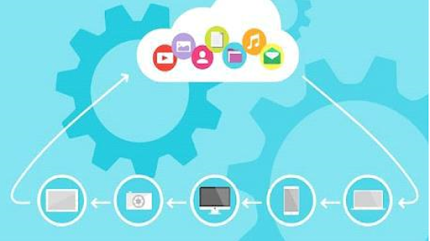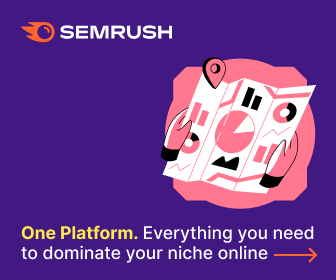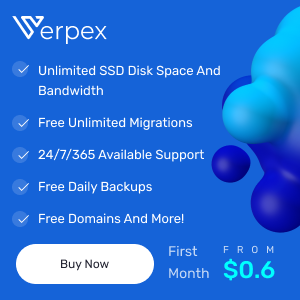To become a blogger, only a lot of hard work is required. All you need to do is consistently produce content of decent quality. On the other hand, it is much more difficult to become a successful blogger. It takes careful planning, smart decisions, and strategic moves to grow a blog from nothing to an endless stream of success.
Your actions can make or break a blog's popularity and monetization, resulting in a blog that generates a steady stream of visitors and revenue. To help you become a successful blogger, we'll goWe'll review a few specific methods and strategies to help you become a successful blogger over a few specific methods and strategies.
14 Ways to Be a Successful Online Entrepreneur and Blogger:
1. Learn how to blog by reading:
you don't know everything there is to know about blogging. As time passes, every industry evolves and expands. As a result, in order to learn, you need to keep up with everything that's going on in your industry and read blogs from a variety of niches.
Along the way, you'll learn a lot, like styles you
didn't know existed. Additionally, you will gain knowledge of how other
bloggers manage email marketing, interact with their audiences, and plan their
editorial calendars.
2. Think of your blog as a business.
What you and I would consider a successful blog entails a lot of work. However, the bloggers who ran these blogs treated them as if they were their own businesses from the beginning contributed to their initial success.
They published posts on a regular basis but not just that. Successful blogs created content that addressed the challenges faced by their target audiences. They also got going and made their websites SEO-friendly. They also learned about monetization, social media marketing, and email marketing. In essence, rather than just starting a blog, you will need to learn how to run an online business if you want to succeed as a blogger.
3. Consistency
Success and consistency go hand in hand. From the publication schedules used by old newspapers to the ones you use today, they have been for centuries. For instance, weekly episodes on television display it. It appears in publications with monthly issues. You even see it in games with week after week games. A schedule for posting is used by some of the most successful blogs.
Some of the time this implies they post once per week while at different times it implies they post around the same time each and every week. Some people even post several times a week, but it all depends on how much good content you can make. Your editorial schedule is only one aspect of consistency. It's likewise about the kind of posts you distribute as well as the introductions and outros you use for each post. Even the styles you use for your blog's fonts, images, buttons, colors, and other elements are important.
4. Expand Your Mailing List
This is an incredible method
for beginning dunking your toe into the universe of expert publishing content
to a blog. Even if you already have an email list, successful bloggers do a lot
more with their lists than just send out emails or weekly newsletters when new
posts are published.
Blogging and online business
benefit greatly from having an email list. It helps you get people to your
website and make them regular members of your audience. It also helps you
connect with your audience—which you can do better if you segment them using
your email list—and this helps you connect with them. When you are prepared to
launch your first product, you will experience increased buzz and consistent
traffic.
5.
Know Your Audience
This is an important one. If
you don’t know who your audience is, you don’t know whether or not the content
you’re creating is truly having a positive impact in your niche. Sure, you can
rely on keyword research and analytics to steer you in the right direction, and
you should, but you should also consider forming a deep understanding of who
your audience is, what they want and what problems they’re facing.
You can use your email list for
this purpose simply by sending a broadcast email every now and then asking your
subscribers what problems they’re facing in your niche or what they would like
to see on your blog. You can also promote a link to a survey on your site. Or
you can even go all in and have real conversations with people by inviting them
on Skype, talking to them on LinkedIn and Facebook groups, participating in
forums, and more.
6
User Experience
This connects to the previous point. The user
experience of any digital space, be it a website or an app, can determine its
success. In a nutshell, visitors won't stay for long on your website if they
have a bad user experience. Additionally, you can't rest assured assuming your
blog's client experience is improved for them in the event that you don't have
any idea who your crowd is and what they need.
The possibility of client
experience has numerous aspects. It mostly depends on how well your website
works and how easy it is to use, but it also depends on how long your posts
are, what kind of email opt-in forms you use, and what you write.
7.
Personalization
Email marketing and user
experience are integrated in this one. You might think you can't give your
audience a personalized experience, but automation and segmentation make it
possible. A typical audience can be divided into two to five groups.
These segments can be
classified as specific categories within your niche or as the demographics of
your audience (beginner, intermediate, and advanced). You can utilize these
sections to send customized content to your supporters in light of what they're
keen on and what stage they're at. Increased open and click-through rates may
result from this.
8.
Value
When you first start blogging,
you might be tempted to publish "viral" posts in the hopes of quickly
achieving success. This might or might not be a good way to get people to visit
your website, but if you don't give your audience or search engines enough
value, you might isolate them. As a result, a less engaged audience and lower
search engine rankings may occur.
It's straightforward. People
want solutions to their problems because they have them. While having a little
fun along the way is fine, it shouldn't be the main focus of your blog.
Instead, create valuable, high-quality content to build real connections
with your audience.
9. Be
Authentic
People are less swayed by
clever marketing copy or advertising in a world where skepticism is high and
anonymity is prevalent. Again, they want solutions to their problems and to
trust a brand with their time and money. Although you may not consider your
blog to be a brand, it is.
How does this affect you? How can you make your blog appear more genuine? Be as genuine as you possibly can. On your About Us page, you don't have to write an autobiography, and you don't have to give your all to every blog post. However, you should give your posts enough of your own personality and personal anecdotes to let your readers know that you're all in this together.
Being honest about any
sponsorship or affiliate deals you have, letting your readers know when you're
not very knowledgeable about the topic you're writing about, and taking
responsibility for your mistakes are all examples of authenticity. It will be
much simpler for you to gain readers if your blog is genuine.
10. Be Unique
A few specialties are genuinely
undiscovered, however the majority of you are reasonable contributing to a blog
in specialties that are fairly immersed while possibly not over-soaked. You
will need to offer something novel in order to succeed as a blogger in a field
that is overcrowded. In a nutshell, you'll need to be different.
Yet, how to guarantee that your blog is one of a kind and stands apart from the group? You can change the way you approach your blog as a whole or just certain topics. For instance, in the event that your blog is tied in with fishing and everybody has a post about what trap to use to get bass, compose a post called "What not to do while bass fishing".
11.
Learn SEO
Let's talk about the business
aspects of running a successful blog now that we've switched gears. When you
decided to become a blogger, you probably didn't think you'd have to worry
about SEO, but it is an important part of every successful blog on the
internet.
The foundations of your SEO plan should be the first
step. Make sure your website is speed- and mobile-friendly optimized. To assist
you in creating a sitemap and organizing your indexes, keywords, meta titles,
and meta descriptions, you can also install a plugin like Yoast SEO. After
that, you should learn how to properly research keywords and use those keywords
in your posts. After that, you can get a handle on more involved SEO strategies
like building brands and white hat links. Naturally, this will also be helped
by producing content that is original and valuable.
12.
Outreach
This is an ambitious strategy,
but if you are willing to put in enough effort and make smart choices, it is
definitely doable. Reaching influencers and getting your content on their
websites are both part of outreach. These will be the most well-known people in
your field, and there are probably about a hundred other bloggers who want your
content on their blogs. To get them to like you, you'll have to do a lot.
To begin attracting their
attention, you will need to locate these influencers, begin sharing their
content, and become involved in their communities. If you message them out of
the blue, you might get lucky, but it's not likely. When you assume you stand
out, you can attempt to contact them by requesting that they advance something
via virtual entertainment, distribute your post on their blog, or connection to
a post of yours on their webpage.
13.
Concentrate on a Single Social Media Site
When you become a blogger as
opposed to a casual user of social media, the number of platforms on which you
can promote your content may overwhelm you. Fortunately, posting a
straightforward promotion of your most recent blog post to every social media
platform is not effective.
Instead, you should focus on
optimizing the platform where your audience spends the most time and identify
it. Once you have established a workflow for your primary platform and have a
respectable following, you can begin using the other ones.
14.
Create Products
This is a definitive way to financial
achievement and freedom, something that might have had an impact on your choice
to turn into a blogger. Sponsorships, advertisements, and affiliate marketing
are all excellent, but they all make you dependent on another company. Because
of this, your choices and the kind of content you want to create won't be
completely up to you.
You also have little control
over how much money you can make from these sources. On the other hand, you own
products like ebooks, video courses, apps, and so on. They can be priced at any
price you want, or at least at the price your target audience is willing to
pay. You are free to make any kind of content you want and make as much money
as you want with this.
Conclusions on How to Be a Successful Blogger
Again, becoming a blogger
doesn't require much, but you'll need to work harder and smarter to succeed. It
all comes down to providing high-quality, valuable content, bringing something
new to the table, and effectively promoting it. While working toward your objectives,
you'll need to overcome obstacles like writer's block and maintain your focus.





























.png)









0 Comments